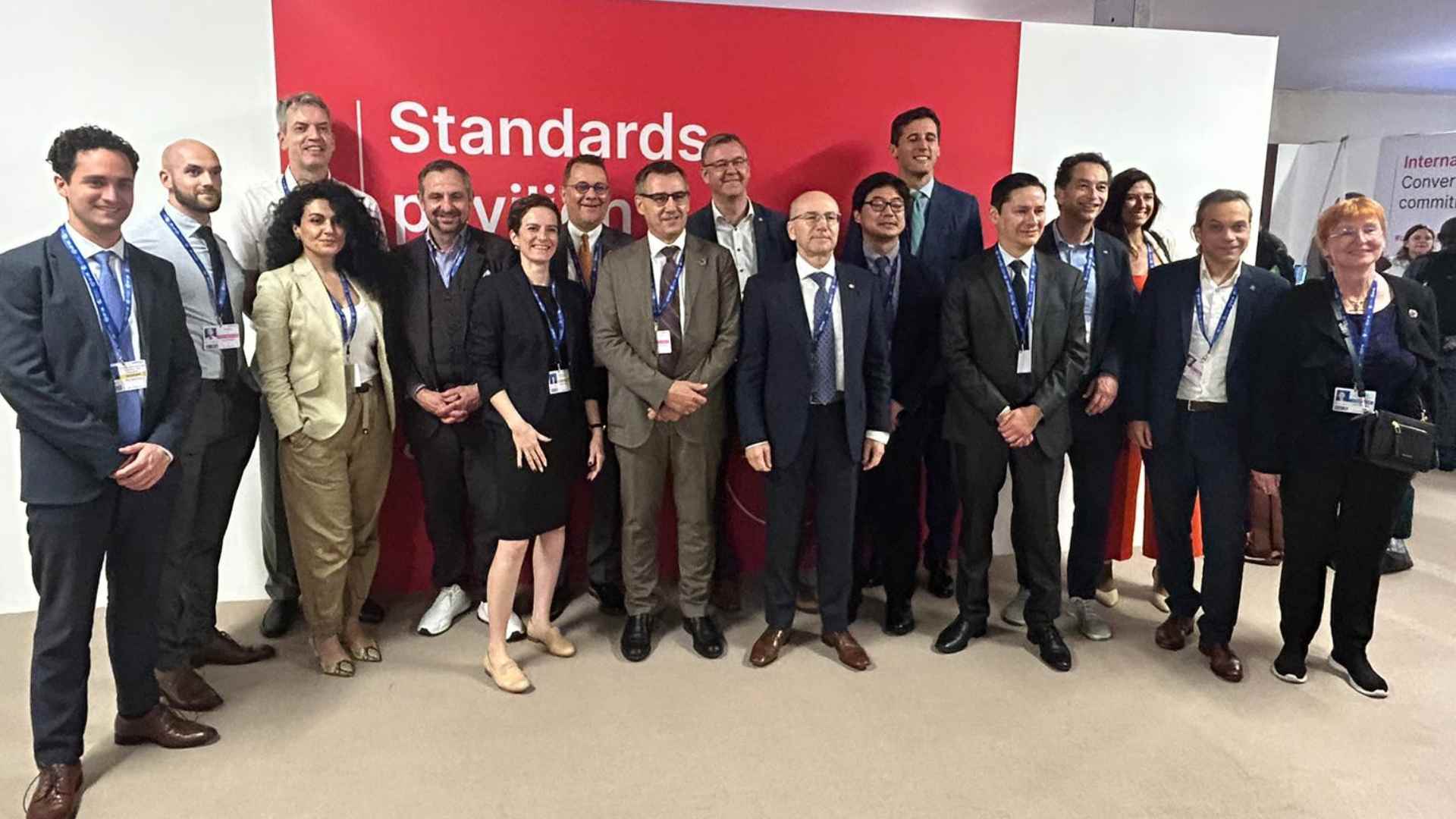New ISO standard on hydrogen unveiled at COP28

Yesterday (5 December) during COP28 in Dubai, the International Organization for Standardization (ISO) unveiled a new technical specification (ISO/TS 19870) as a foundation for harmonisation, safety, interoperability and sustainability across the hydrogen value chain. Through its Technical Committee on Hydrogen Technologies (ISO/TC 197 / SC1), in which Hydrogen Europe and its members participate, international experts have been working within ISO to develop international standards for hydrogen to contribute to global market stability and certainty.
Standards provide a foundation of trust and consensus on which companies and countries can cooperate to foster a just energy transition. Standards, conformity assessment and regulations are critical elements to guide technological development, ensure that green technologies can achieve what they promise, and certify that products and technologies comply with safety, environmental and social requirements. For consumers, standards ensure safety and reliability; for businesses, they provide investment security and a common reference point across value chains, enabling scalability into new markets.
A coordinated, international approach to standards is key to enable the emergence of new global markets and cross-border flows of decarbonised energy solutions like hydrogen and hydrogen carriers, avoiding fragmentation, reducing non-tariff barriers to trade, and levelling the playing field. Traceability of clean energy products and having certificates recognised on a global scale will be key.
To discuss and advance the role of hydrogen standards and regulation at the global scale, Hydrogen Europe partnered with the United Nations Industrial Development Organization (UNIDO) and the German Institute for Standardization (DIN) for an event at the COP28 Standards Pavilion by ISO entitled “Catalyzing the Clean Hydrogen Revolution: Global Standards, Safety, and Sustainability”. This event brought together more than 40 representatives from international institutions, governments, and hydrogen companies from around the world to discuss the new ISO standard and the role of regulation, which must ensure that standards are embedded in a meaningful legal framework to ensure trade, trust, traceability and transparency in the hydrogen economy.
“The ISO/TS 19870, presented at COP28, marks a critical milestone in harmonising the hydrogen industry globally. Hydrogen Europe is at the forefront of advocating for standards that ensure safety, sustainability, and interoperability. Our recent joint paper with H2Global Foundation emphasises the role of digitalisation, like digital product passports, in managing hydrogen value chains. These standards combined with digital tools are crucial for a transparent, trustworthy, and efficient global hydrogen economy,” said Jorgo Chatzimarkakis, CEO of Hydrogen Europe.
“A clear robust hydrogen economy must be underpinned by reliable standards and quality infrastructure, which is key to rolling out technologies and applications, and will serve as a critical enabler of the sector’s long-term success, thereby aiding in the countries’ net-zero transition,” said Gunther Beger, UNIDO Managing Director.
“Hydrogen is a key building block for climate protection. The new ISO standard fits seamlessly into our ongoing efforts in Germany to develop and implement a detailed roadmap for future hydrogen standardization. We systematically analyse the existing standards catalogue and supplement it with technical rules that will accelerate the ramp-up of hydrogen technologies,” said Christoph Winterhalter, CEO of DIN (the German Institute for Standardization) and ISO Vice President of Policy.
“The new ISO/TS 19870 provides a truly international methodology for assessing the GHG footprint of hydrogen as a product from well to consumption gate, including every delivery gate on a life cycle analysis basis. It helps us create a common international language around hydrogen and allows the least carbon-intensive solutions to shine. This is crucial for facilitating international trade, which is vital to realizing the decarbonization potential of hydrogen,” said Ulrika Francke, ISO President.
For more information: Standardising Hydrogen Certification report

 Log in
Log in
 Search
Search



